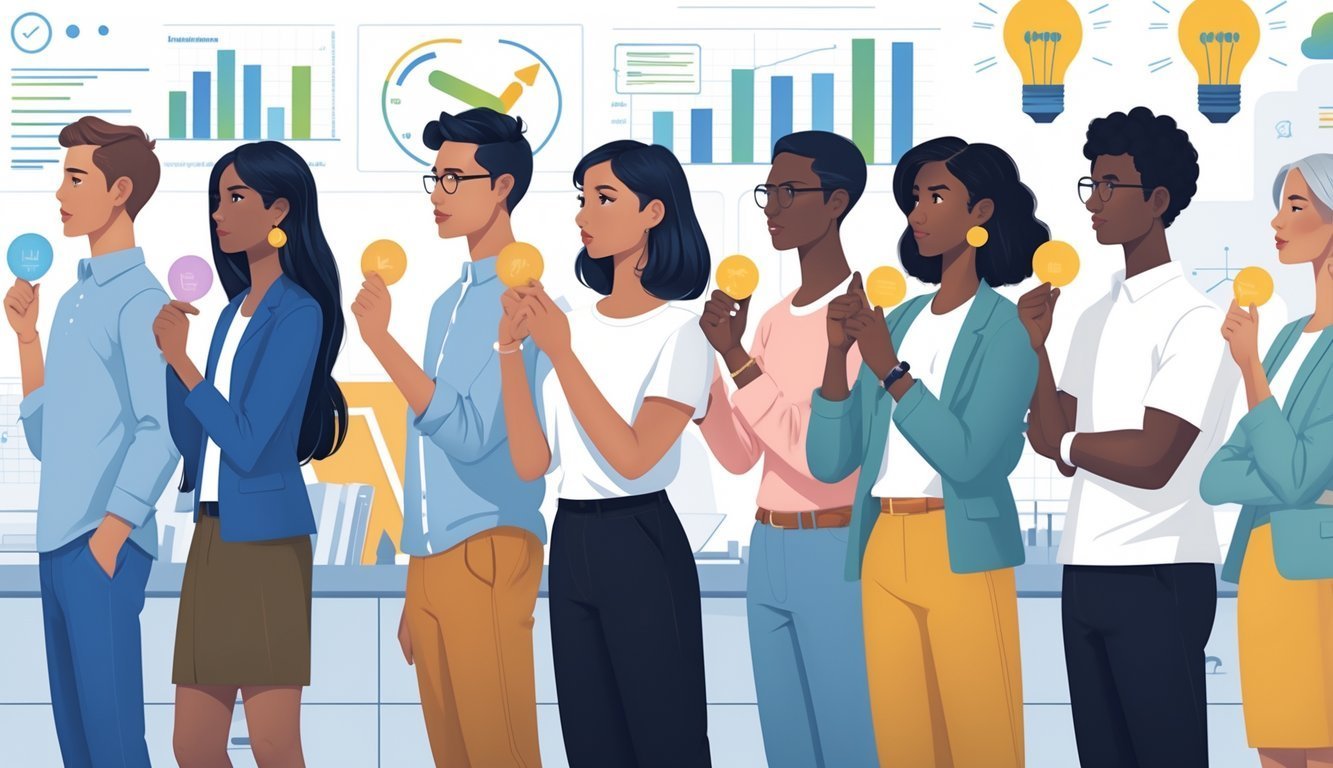PsychNewsDaily Publishers
100 Summit Drive
Burlington, MA, 01803
Telephone: (320) 349-2484
PsychNewsDaily Publishers
100 Summit Drive
Burlington, MA, 01803
Telephone: (320) 349-2484
People frequently mimic others' choices due to social influences, cognitive shortcuts, and the desire for belonging, impacting their decision-making in various aspects of life.

People copy the choices of others all the time, often without realizing it. New research suggests this happens because we notice certain details about what’s being chosen.
We tend to mimic others’ decisions when something about the choices really stands out or just feels important to us.
Copying others helps us make decisions more quickly and feel like we belong. Sometimes it’s about simple things, like food or clothes. Other times, it’s about bigger stuff, like setting personal goals.
If you start to notice when you do this, you might make better choices and realize when you’re just following the crowd.
Your own goals can shape how you make decisions for yourself and for others.

You often go along with others because it makes decision-making easier and helps you fit in. There are a few different reasons for this—your brain, what you learn from others, and how culture shifts over time all play a part.
Your brain actually wants to connect with people and feel like part of the group. When you watch someone make a choice, you pick up on their emotions and social cues—sometimes without even noticing.
Mimicking others’ decisions builds trust and makes social situations less awkward. It takes less effort than figuring everything out yourself.
When you see someone else choose something, it just feels safer to follow their lead.
You rarely have all the info you need to make the perfect choice. Social learning means you watch what others do and copy them, which helps you avoid mistakes.
Your brain has limits, and that’s where bounded rationality comes in. Instead of stressing over every detail, you take shortcuts by following others.
This saves you a lot of mental energy, and usually, it works out fine.
You tend to copy what most people are doing—it’s just natural. This keeps groups together and helps everyone stick to shared habits and preferences.
As people keep copying each other, culture stays stable but still changes over time. New ideas pop up, old ones fade, but copying helps good traditions stick around.
Your culture ends up being both steady and flexible.

Copying what others do shapes a lot of your daily life, from shopping to helping people. It influences who you trust and even how researchers study human behavior.
If you understand this, you might notice why you follow others and how it can actually help you sometimes.
When you see people picking a certain product, you feel more comfortable choosing it too. This social proof works best when a product has a bunch of features you’re not sure about.
Marketers love this. They show off popular items or highlight customer reviews to nudge you toward buying.
Studies in the Journal of Consumer Research and Journal of Marketing Research find that copying helps you make decisions faster and with less risk. You often focus on things like brand names or packaging because they signal quality.
Marketers track your copying habits to design smarter ads. They put “best-seller” or “most popular” tags everywhere, hoping you’ll feel better about your choice.
Copying isn’t just about buying stuff; it shows up in giving too. If you see a bunch of people donating to a cause, you might feel more motivated to join in.
This prosocial behavior spreads through communities and encourages more generosity.
Research links social copying to higher charitable donations. When charities share how many people give, it makes you want to help too.
Showing stories of supporters or displaying donation numbers taps into your instinct to imitate. Giving feels safer and more satisfying when you know others are doing it.
Trust matters a lot when you copy someone’s choice. If you notice others trusting a person or a group, you’re more likely to trust them too.
This builds reciprocity—people help each other because they expect the favor to come back around.
Social learning helps you figure out who to trust. You watch who gets trusted and copy their behavior to avoid getting burned.
This ties into reciprocal altruism from cooperation studies, showing that helping can be a smart move.
You learn who to rely on by watching how others act with honesty or fairness. Copying choices plays a big role in teamwork and friendships.
Researchers dig into how people copy each other to understand behavior better. Social learning gets a lot of attention in psychology and economics.
The Journal of Consumer Psychology often publishes studies on this topic.
Scientists explore when copying actually helps and when it might steer you wrong. They look at partial copying—where you mix your own ideas with what others do—for better outcomes.
This research helps improve marketing, public policy, and education by showing how social choice shapes what people do. Sharing methods and results openly also moves open science forward.

Copying others often feels easier and safer. Lots of social and psychological factors push you to follow the crowd, shaping what you want or buy.
You copy others because it lowers the risk of making a bad choice. Watching what others pick gives you clues about what might work out.
Social proof and trusting others’ experience often nudge you to follow their lead, especially when things feel uncertain.
Yes, copying can make decisions quicker and less stressful. But it sometimes means you miss out on better options just because everyone else likes something else.
Your choices might end up less unique, too.
Social interactions can shift what you like or want. When lots of people choose something, you might start to like it, too.
You want to fit in or you trust what the group seems to know.
Imitation is huge for learning, especially when you’re younger. Watching others shows you how to act and what to expect.
Copying lets you pick up skills and habits without having to figure everything out on your own.
Mirroring means you match others’ choices—sometimes without realizing it. In shopping, you might end up picking products that are popular with your friends or peers.
Brands and trends spread quickly this way, since people want to feel connected or accepted.
Your brain tries to save energy by taking shortcuts, and one of those shortcuts is just going along with the group. It’s not just about laziness—it’s also about wanting to fit in.
Most of us really don’t want to feel left out. That urge to belong? It’s surprisingly powerful and often pushes us to imitate what others do.